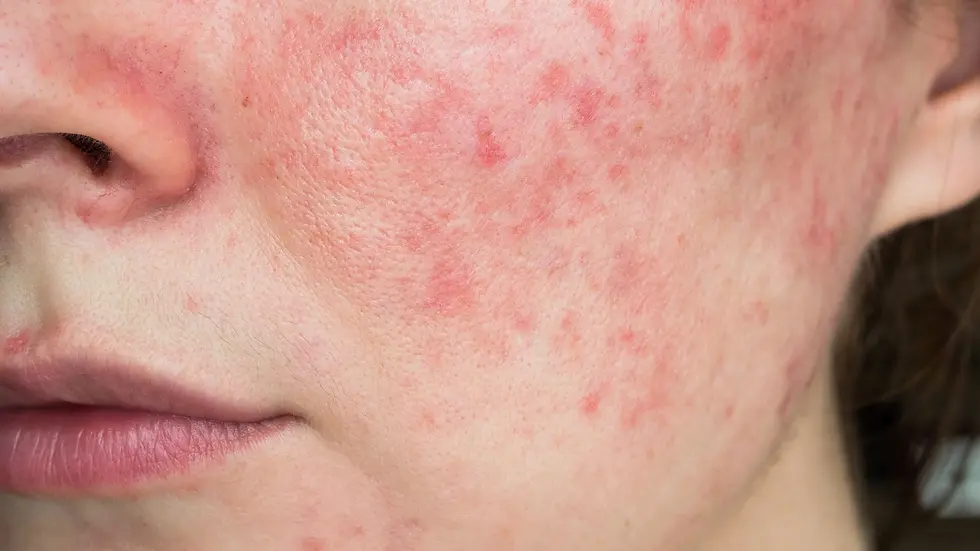Everything you need to know about retinol
- marketing21980
- Nov 1, 2023
- 3 min read

What is retinol and how to use it?
Retinol, also known as vitamin A, is a star among skincare ingredients with multiple functions. If you want an effect on fine lines, pigmentation, blemishes or enlarged pores, it may be a good idea to include retinol in your skincare routine.
What is retinol?
Retinol is a form of A-Vitaminn which is often used in advanced skin care products, and is recognized as the industry's absolute gold standard for reversing signs of aging in the skin!
Retinol works with the skin by increasing cell renewal, increasing the production of collagen and reducing the breakdown of collagen as a result of sun exposure. Thus, it reduces both lines, wrinkles and dark spots on the skin. Retinol can also help reduce blemishes by preventing dead skin cells from clogging the pores.
How does retinol work on the skin?
Retinol helps the skin renew itself faster. This through boosting the production of new cells, as well as helping the skin to get rid of the old ones. This results in smoother skin, both in texture and colour. Retinol is a very active ("strong") ingredient, and the skin must therefore build up tolerance via what we call retinoid receptors first. These receptors are proteins found naturally in the skin, which help the retinol to do its job. Therefore, it is also important to "rush slowly" when you start using retinol for the first time, in order to achieve maximum effect.
Benefits of using retinol:
Reduces wrinkles and fine lines: Retinol helps to stimulate the production of collagen and elastin, which are essential for maintaining the skin's firmness and elasticity. With regular use, retinol can reduce the visibility of wrinkles and fine lines.
Evens skin tone: Retinol helps even skin tone by reducing hyperpigmentation, sun damage and age spots.
Reduces acne and blemishes: Retinol is effective against blemishes due to its anti-inflammatory properties. It can help reduce inflammation, clean pores and regulate sebum production. The result is clearer skin, but fewer breakouts and less visible pores.
Improves skin texture: By stimulating cell renewal, retinol helps to improve skin texture. It removes dead skin cells and smooths the surface, resulting in a softer, smoother and more even skin texture.
Moisturizing properties: Retinol also helps to improve the skin's moisture level by strengthening the skin's natural moisture barrier.
Antioxidant protection: As a powerful antioxidant, retinol helps protect the skin against damage caused by free radicals and environmental stressors.
How to use retinol?
If you are completely new to retinol, you should choose a cream or serum with a low concentration to begin with, to avoid redness, flaking and irritation. The skin will usually get used to the ingredient eventually, and then you can eventually switch to a product with a higher concentration.
Hurry slowlyThe oldest rule in the book; if you are not used to using retinol, start carefully and methodically. Feel free to start with a low concentration and gradually increase to a more concentrated version. Apply every two or three days at first.
Safe fellow players
While using retinol, make sure your skin care routine includes additional soothing and moisturizing products to strengthen your skin. Look for ingredients such as hyaluronic acid, glycerin, ceramides, aloe vera, allantoin, niacinamide and panthnol.
Remember sun factor
Always apply UV protection with at least spf 30 during the day. If you are not careful with sun protection, even the most effective ingredients will not be able to give you the desired result. Unprotected sun exposure is generally dangerous for the skin, but with the use of retinol the damage can be even greater.
Who should use retinol?
Everyone in adulthood with typical signs of aging can benefit from retinol, but the strength should be adjusted according to skin condition. A stronger form of retinol can be very effective on sun-damaged and aging skin. Retinol is also a good tool for treating acne. You should be careful with stronger retinol creams on very dry skin, or if you struggle with eczema or rosacea. If you have skin with an uneven texture or skin tone with, among other things, scars, lines, pigmentation or the like, retinol is an ingredient you should look for.
Nursing and pregnant women should avoid using products containing vitamin A and retinol.




Comments